ORI Polls App
The director of research at the Qualia Research Institute recently posted this poll asking whether people believed in universes with different laws of physics:
I’ve been wanting to build an app where, it’s just like a twitter poll, except who said what is public. And if they’ve already said it before, elsewhere, you can throw that in too1.
It might look something like this:
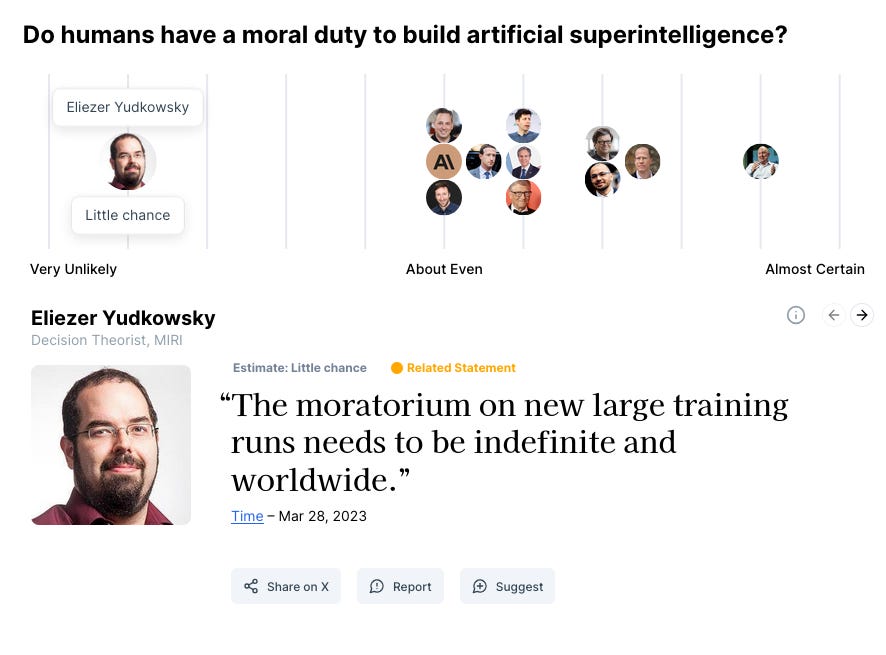
Imagine that you can (1) can login with twitter, and (2) can limit it to who you follow (trust).
The version I want to see should feel “fun”, “playful”, and minimal. Like, I want to just post a statement (or a tweet, or essay), ask people to rate A/B/U, and see where everyone lands:
I think the “fun” part is seeing this update live. Like if your initial reaction was one way, then you saw what everyone else said, and now you’ve changed your mind2. You could watch the collective make up their mind, watch it settle.
I think the mindblowing part will be when you make it so you can login with twitter OR bluesky (& other stuff). These communities are typically information silo’s/echochambers, but if you have an audience on both, you can get them to talk, through you3.
You can also imagine clicking on any particular profile and seeing all their answers, where they stand on various controversial topics (maybe this can be opt-in):
My plan for how to market this tool / get people to use it is to retrofit it onto existing behavior patterns, instead of trying to get people to change the way they communicate. What people ALREADY do is reply on twitter/bluesky to things they have a strong opinion on. Postscope is a tool that can extract all the replies to a post and plot them on a semantic map & find clusters.
For example, in a recent post I got over 400 responses to this question:
“(1) is it true that complex minds need simple minds (2) if so, how can that be?”
There were no survey options defined ahead of time, but options emerged anyway as 90% answers fell into specific categories. With the postscope tool I can see those categories. In the video below, there’s a lot of replies that fall in this green corner where their answer is something like:
“it’s easier for simple minds to be happy”
In this version, it shows the profile picture of the people I follow/trust. This is important because I do NOT update my beliefs based on what the crowd thinks - I update it based on a kind of “weighted algorithm” - I trust certain people on specific things.
I think that’s the basic idea - let me know if you have any questions, or if you already have a tool that you like to use for this sort of thing. I’m brainstorming an MVP for it in this GitHub repo: https://github.com/Open-Research-Institute/polls-app?tab=readme-ov-file#polls-app
In other news, I’ve recently refreshed the “Open Memetics Institute” github repo, and people are starting to contribute, and I’m very happy with how this is unfolding. Expect more from there soon!
This feels like a small sidenote but it is EXTREMELY IMPORTANT and the app will fail without it. It needs to be something that you don’t HAVE to interact with - you have to be able to post your opinion on whatever platform you choose, and it can make its way there. The tech is a means to an end (surfacing consensus)
At some point people will realize it’s really fun to just make waves in the data, and they’ll just jump back and forth together because it’s fun, regardless of what the question says.
This is allowed and encouraged.
The really exciting part about using A/B/U here is that you could track the propagation of truth. If you get “A” on twitter but “B” on bluesky, then you’ve caught a new truth that’s already spread to one, but had not yet in the other. You can use this method to “triangulate” the source of truth, but also find “blockages” in the information pipes (truth that gets marked as U)


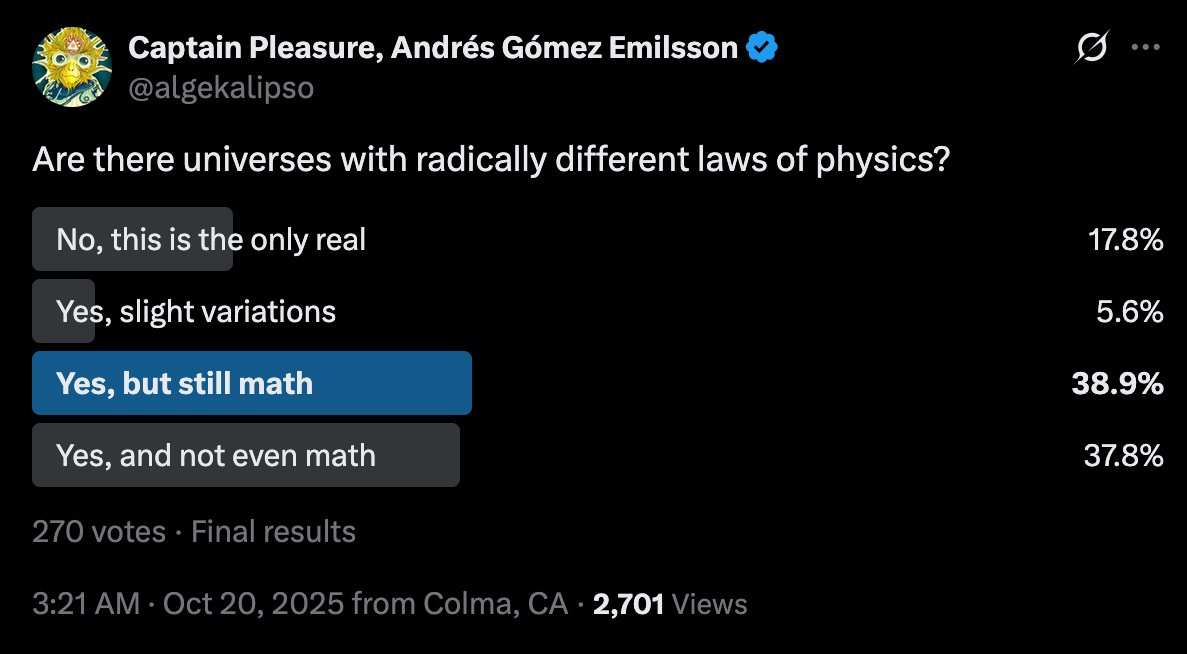
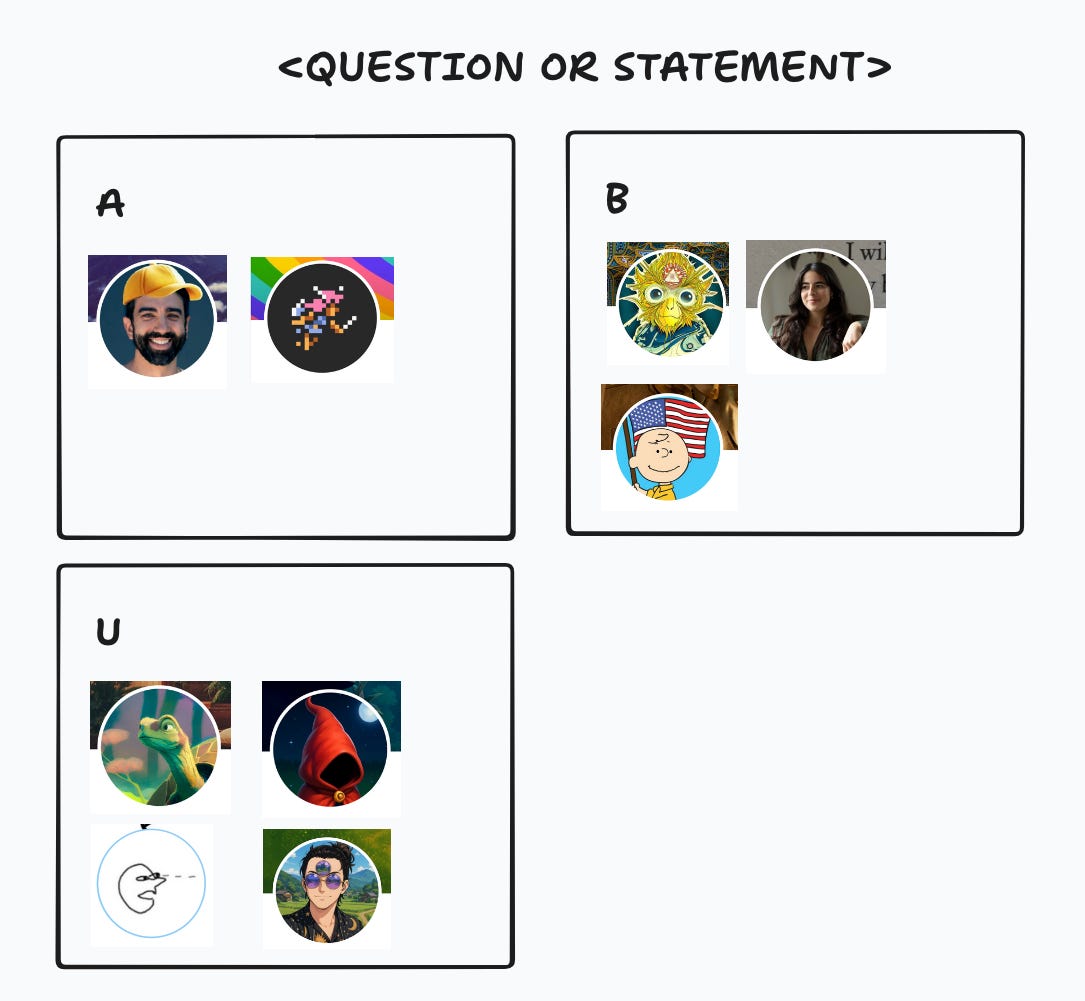

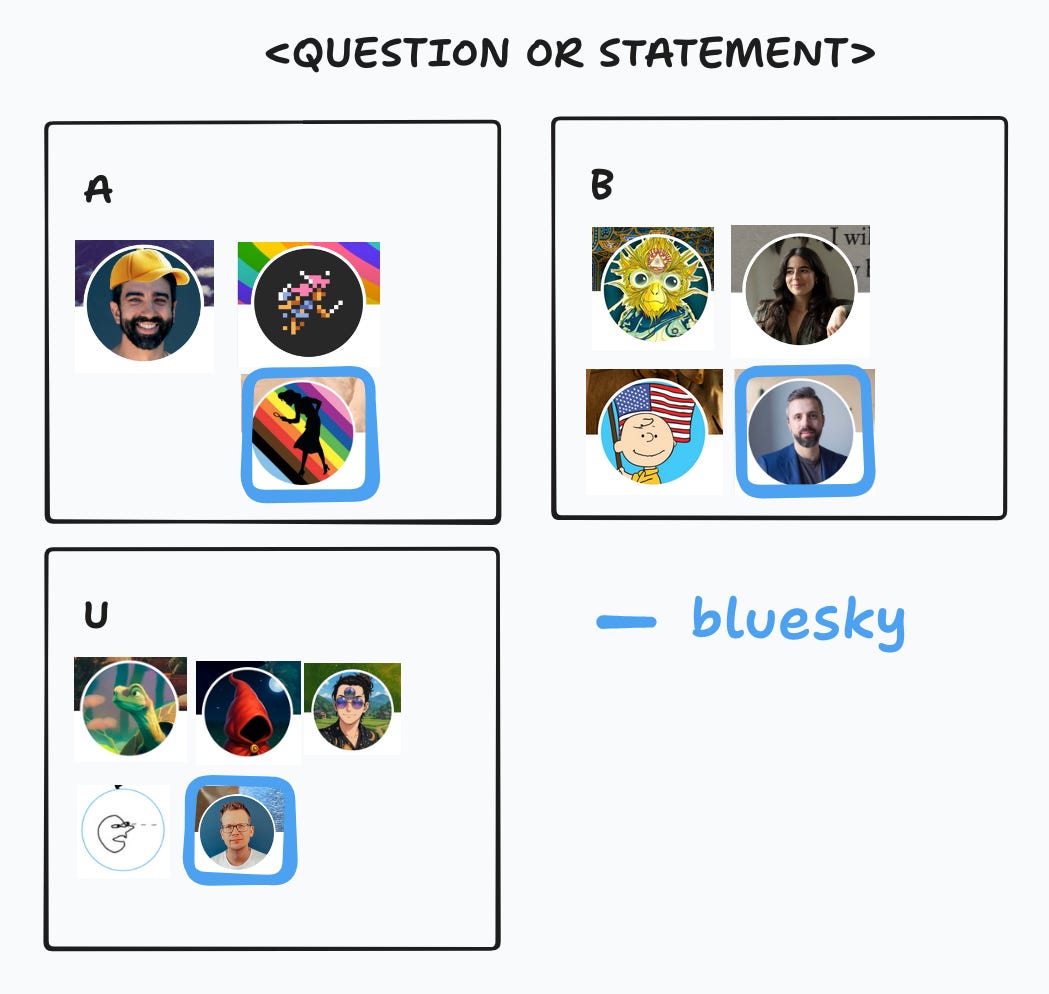
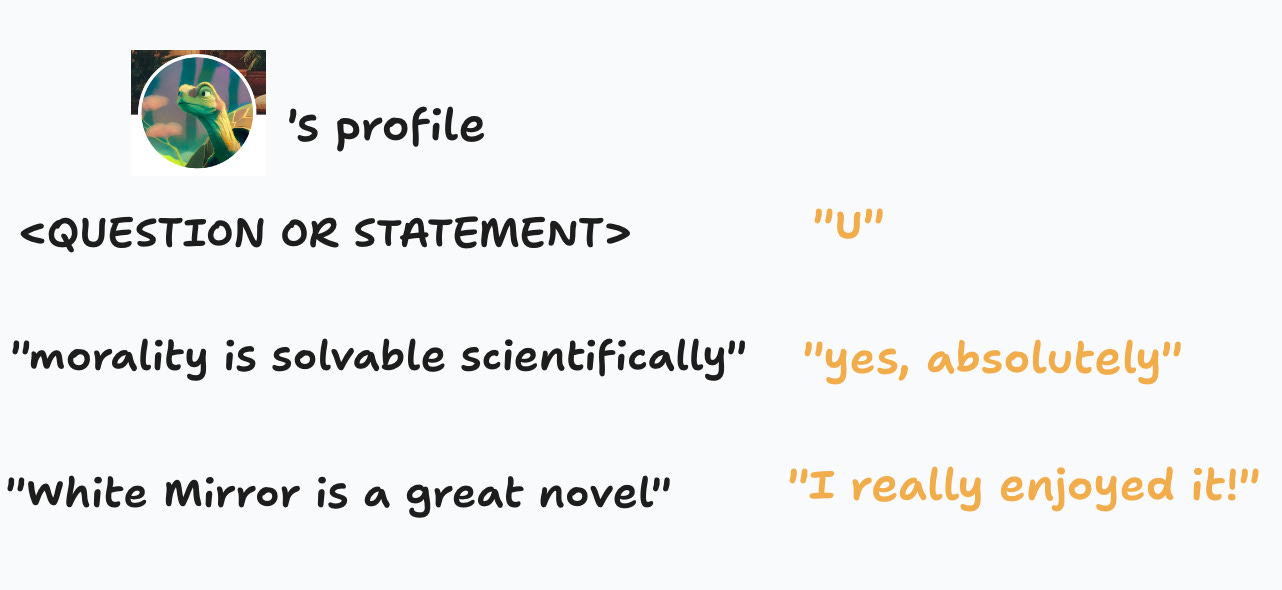
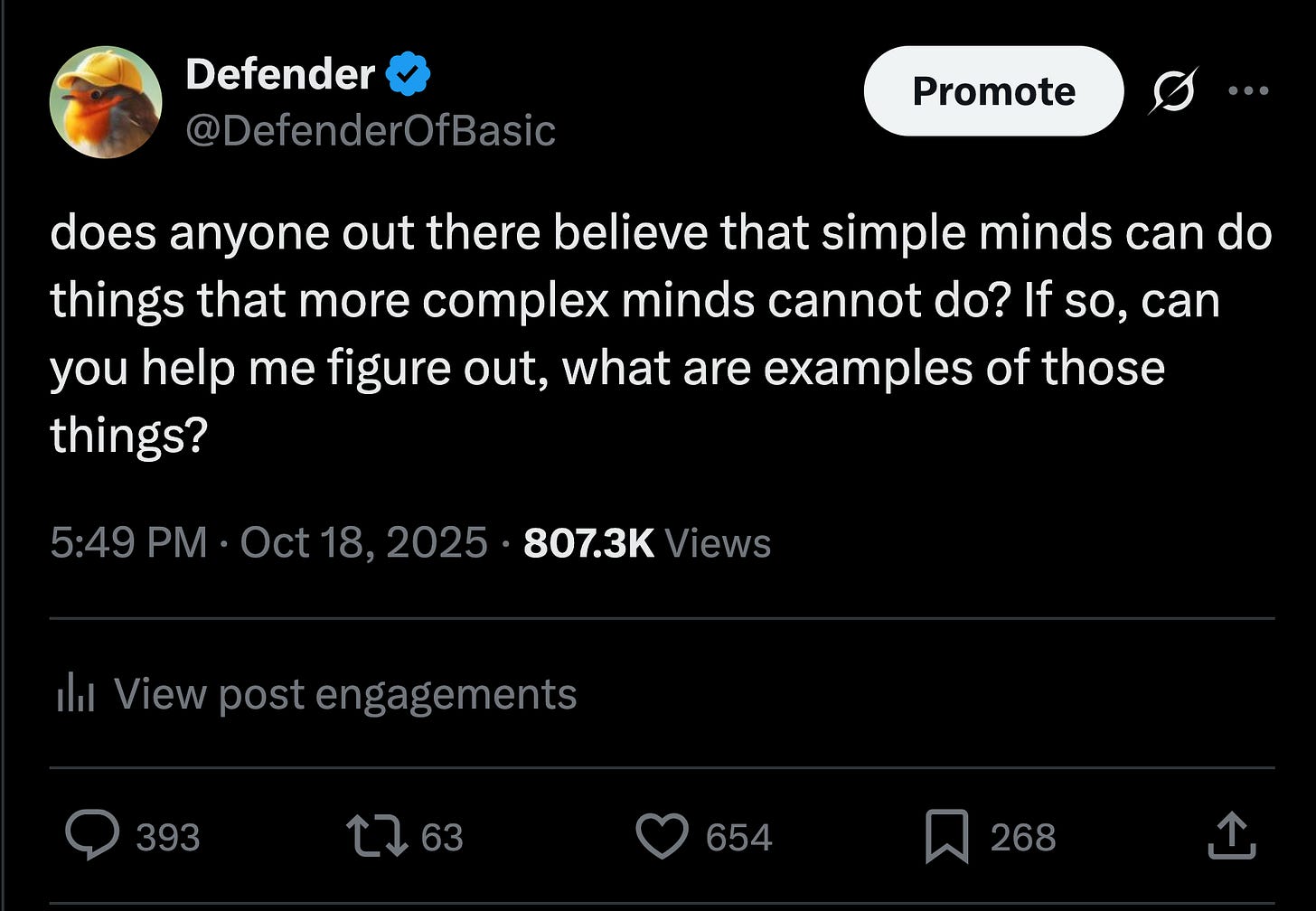
This is a great idea. Why not substack, too? I'm no longer on Twitter, and I haven't bothered to get a bluesky account.
in case there's still time to answer the tweeted question about minds:
https://dothemath.ucsd.edu/2025/08/the-genius-of-survival/
"These communities are typically information silo’s/echochambers, but if you have an audience on both, you can get them to talk, through you" - Meh, only to an extent. e.g. I'm not interested in discussions with eco-ignorant folks about how everything is going to be okay (not because I've simply decided I'm closed off to their arguments but because I've already devoted a ton of time to examining their arguments -more than they've ever dared to examine mine- and found them flimsy, and it feels like a frustrating waste of my time to engage with them ... I expect there are other such cases like this)
Are you familiar with "cultural materialism"? The idea is: more so than explicit messaging, the very foundations of our survival have the most powerful influence over our deepest beliefs, because they determine what we take for granted and set constraints on our ability to imagine alternatives. I think that as the grocery store shelves become barer over the years, and electricity and internet and water become less reliable, it'll do more than words on a screen can to influence folks' perceptions (and not just the answers but also the questions!). To apply this to the superintelligence question, I guess the effect will be that opinions will gravitate toward a third off-spectrum option: "AI/internet has been down everywhere since 2033. Get out here and help us dig."